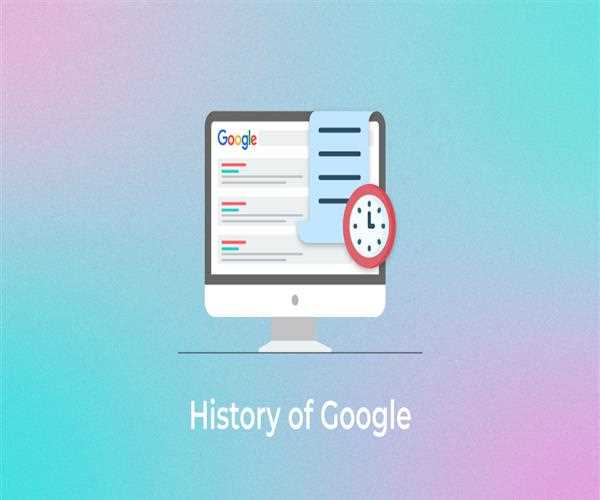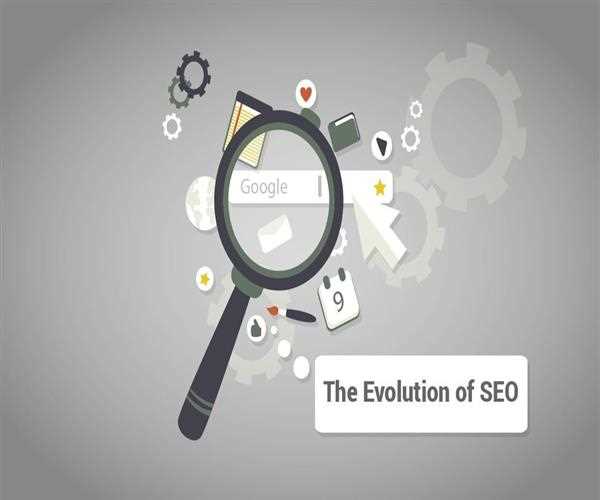
16-Oct-2024 , Updated on 10/17/2024 8:16:35 PM
History Of Google Search Engine: Evolution To Advancement
On September 4th, 1998, Larry Page and Sergey Brin introduced Google, a search engine that has revolutionized the concept of how information could be sought over the internet. For the years, Google has been improving features, and not a day goes without updating the search engine: AI, gadgets gaining knowledge, and the complicated algorithms in delivering relevant results. It may not be the best technological advancement; however, the expansion of Google Search tells much about the quick pace regarding virtual development.
Early Days of Google: Birth of an Era
Originally, Google stemmed from a research project at Stanford University that was supposed to organize sector information. At first, it distinguished itself with PageRank, a unique set of rules aimed at rating net pages primarily concerning their relevance and links. Google Search in particular displaced human editors earlier seen in the cases of the first pioneers, Google and the Yahoo directory—the element of algorithmization made it possible and made the method intrinsically scalable, thus signaling the beginning of a new virtual generation.

The Introduction of Ads and Revenue Model
In 2000, Google started AdWords, which is a PPC advertising and marketing platform, and gave businesses a new way to approach promoting digitally. Knowing the insistent nature of Google’s expansion, ads became a piece of the company’s enterprise model, which could fuel these continuous adjustments. Currently, AdWords is Google Ads, which is a core marketing platform for businesses that offer highly flexible targeting instruments.
Algorithmic Changes: From Panda to RankBrain
To enhance the consumer revel in, Google has been making regular updates to its algorithm, one of which included Panda in 2011. It aimed at reducing the terrible first-class content. I later saw that Google’s updates, including Hummingbird in 2013, were a clear message from the searches on understanding the consumer’s why, hence transitioning to semantic search.
RankBrain, delivered in 2015, took Seek Intelligence to the subsequent degree. As part of Google's algorithm, it incorporated a system getting to know to higher procedure seek queries, even the ones Google hadn’t visible earlier. This paved the way for better results simplistically and also laid the platform for AI.
The Era of AI: Primarily Voice SEO or Voice Search and, to some extent, Google Assistant
Among the many primary advancements in the current years, the pinnacle has been the incorporation of synthetic intelligence (AI) options with Google Search. The release of Google Assistant in 2016 drove the bounds of conventional seek, allowing users to interact through voice commands. This marked a new frontier—Google Search had advanced from being a mere statistics retrieval tool to becoming a private assistant with knowledge of human language and context.
Voice search, along with Google’s AI-driven features, has reshaped how users engage with their devices. Google’s use of AI is going beyond easy question responses—it predicts a person's motive, personalizes outcomes and gives rich reviews through functions like Google Lens.
Mobile-First Indexing: Optimizing for a Mobile World
With the explosion of telephone use, Google has followed a cell-first strategy. In 2018, it rolled out cellular-first indexing, which prioritized mobile variations of websites over desktop variations in search ratings. This turned into a reaction to the fact that maximum internet users now get entry to content material via cellular devices.
While, of late, Google has paid more attention to velocity, protection anomaly, and user experience in mobile systems. Some of these include the AMP (Accelerated Mobile Pages), which actually offers particular much faster page loading for cellular clients, a trend that Google is seeing for improving cellular search research.
Google Search Today: AI and Multimodal Search
At present, Google also adapts to the advances where AI-related features such as MUM (Multitask Unified Model) look for a solution through the processing of multiple-segment queries and integrating data from special languages, media types, and formats. This enables Google to respond to a number of sophisticated issues that can be facilitated by a number of attitudes and viewpoints.
Recent developments that Google has introduced in the field of AI are getting aggregate search capabilities with textual content, photos, and video outcomes integrated into an incessant search progression. It shows the destiny of seek, which more and more boils down to the flexibility that clients can put in a couple of inputs—pictures, speech, or text—and get valuable results irrespective of the medium.

Future of Google Search: Predictions
As Google looks toward the future, improvements in quantum computing, deep mastering, and natural language processing promise even more transformative adjustments. The integration of augmented truth (AR) into search results ought to lead to absolutely new approaches to experiencing the web. Imagine searching for a product and being able to view it in 3-D with the use of AR right from Google’s search outcomes!
Additionally, ethical issues surrounding AI and statistics privacy could be critical in shaping how Google and other services evolve. Just as tuning one frequency can either enhance private enjoyment or censor out the numbers, Google will have to carefully tread the highwire between the two classes.
Conclusion: Googleing the Successful Journey of Google Search Google as a university mission to the famous technological search engine in the sector. Over many years, Google has essentially changed how we get information entry, making use of modern-day technology together with AI, device mastering, and cellular-first indexing. As we move ahead right into a future pushed by AI and multimodal competencies, Google will certainly keep steering the way in reshaping our digital stories.

Student
Being a professional college student, I am Shivani Singh, student of JUET to improve my competencies . A strong interest of me is content writing , for which I participate in classes as well as other activities outside the classroom. I have been able to engage in several tasks, essays, assignments and cases that have helped me in honing my analytical and reasoning skills. From clubs, organizations or teams, I have improved my ability to work in teams, exhibit leadership.
Join Our Newsletter
Subscribe to our newsletter to receive emails about new views posts, releases and updates.
Copyright 2010 - 2026 MindStick Software Pvt. Ltd. All Rights Reserved Privacy Policy | Terms & Conditions | Cookie Policy